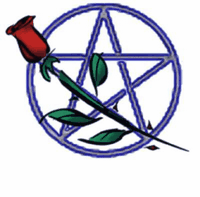The practice of Wicca is relatively new, compared to most mainstream religions. Though the numbers of practitioners are small, Wicca is a religion that is on the rise, growing in popularity where many religions are loosing members. With its practices comprised of pre-Christian European pagan rites and more modern new age influences, Wicca is an attractive spiritual option to a growing number of devotees.
It is not completely clear whether the recent rise of Wicca is attributable solely to an actual increase in the numbers of practitioners, or whether it is simply the case that more and more existing Wiccans are finding the social climate more accepting and are “coming out” as Wiccans. Likely, the cause of the rise in numbers is attributable to both effects.

According to the American Religious Identification Survey, only 8,000 people in the United States identified as Wiccan in 1990. By 2001, that number had spiked to over 134,000 people. In 2008, the rate had exponentially increased, with around 342,000 people identifying as Wiccan. Wicca is recognized as an organized religion by the U.S. military. Many Wiccans assert that their religion has historical roots pre-dating Christianity, an some evidence supports this assertion.
If the mainstream acceptability of witchery in general and Wicca in specific is the cause for the increase of people identifying as Wiccan, there are several factors that could account for it. For one, Wicca is a religion that emphasizes a oneness with the earth and the natural world, a sentiment that is reflected by the growing trend in the popularity of “green” living, environmental responsibility, and ecological preservation. Second, Wicca promotes gender equality, an attractive feature to many who are jaded with traditionally patriarchal mainstream religions. Where many older, traditional religions place ‘Man’ and the ruling component, Wicca tends to put ‘Nature’ at the center and place men and women on equal spiritual footing.
Another causal factor in the rise of popularity of Wicca may be attributed to the growing understanding of what Wicca spirituality entails. Though the leaders of many fundamentalist religions might disagree, it is nevertheless true that Wicca has nothing to do with devil worship or Satan. Those notions are Judeo-Christian-centric, Wiccans argue. In fact, Wiccans do not believe in the existence of a devil or Satan, so it is impossible that such an entity would be considered within the religion.
Another former misunderstanding of Wicca involves supposed supernatural powers. Though Wiccans see magic (sometime spelled as ‘magick’) all around in the world, to them, it is a part of nature itself, and there is nothing supernatural about it. Wiccans argue it is better to work with these supposed supernatural forces rather than deny or ignore those forces. In working with ‘magick’ Wiccans are often called ‘witches’ rather than Wiccan practitioners, which is often an effort to be insulting or degrading due to a long cultural bias about what is a ‘witch’. Many Wiccans are beginning to embrace the term ‘witch’ and work on shedding a new, positive light on the word.
A final contributing factor to the acceptance of Wicca is likely the popularity of witches and magical concepts in mainstream culture. Perhaps the most powerful of these influences is the popularity of the Harry Potter franchise, in which being a witch is not only acceptable, but also something cool. Though the witchcraft in the Harry Potter series in no way resembles Wicca, it is nevertheless a foot in the door of cultural acceptance. General interest in the supernatural is growing in American culture, and this acts as a similar foot in the door, though again, Wiccans do not believe in the supernatural, as supernatural is just the less understood aspect of ‘Nature’. The fact that ‘spellcasting’ and magical spells are looked upon as not inherently evil is a huge step forward culturally. Love spells have become on the most popular services on the Web.
Whatever the case, the thousands-of-years-old slur of being called a witch no longer carries quite so heavy a negative connotation. In centuries and even just decades passed, being labeled as a witch was often shorthand for heresy, and countless women and men have met untimely ends following accusations of witchcraft. In the Western world, this treatment is no longer practiced, and it is certainly true that Wicca popularity is on the rise.
If you are interested in speaking with a psychic who is knowledgeable in Wicca, give Wicca Psychic Aspasia. You will also find a number of psychics with Wiccan interests (including spellcasting) at Ask Psychics

Speak Your Mind